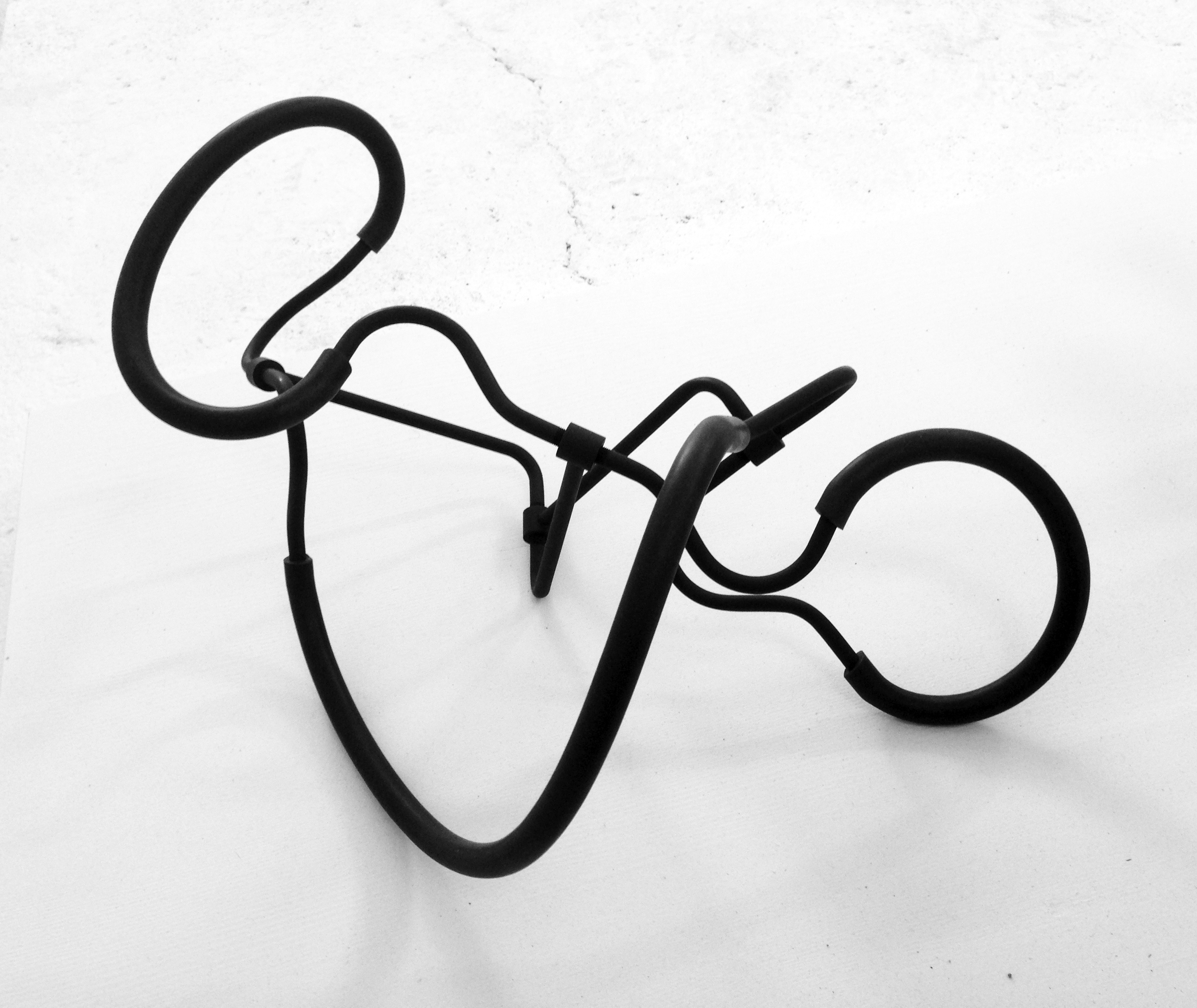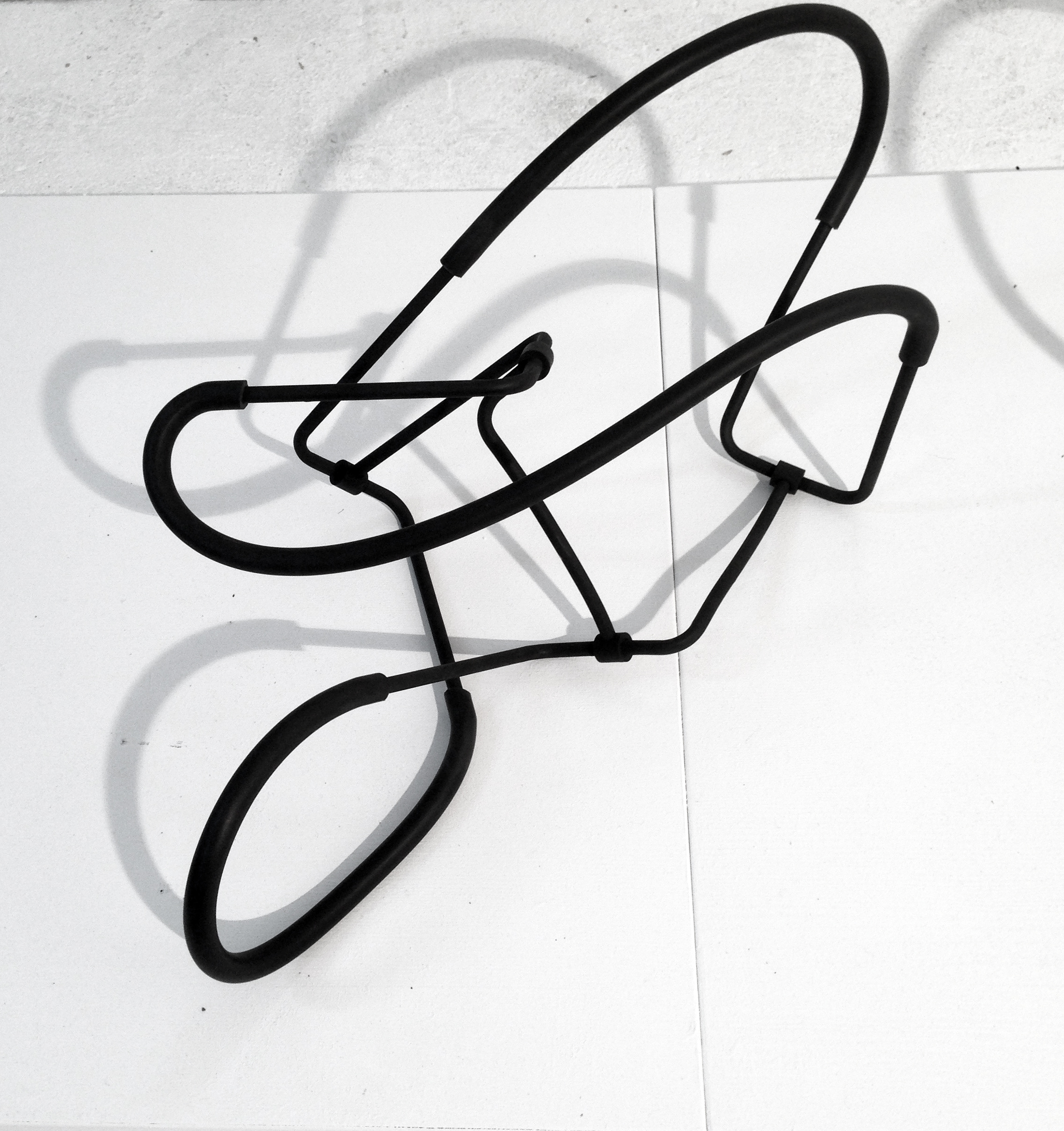

The Contortionist series consists of sculptures constructed from
the combination of metal and rubber parts. Exploring what is available in the
industry (in terms of form, material, and size), Gustavo Prado presents a set
of pieces made from different metals, which connect to tubular rubber
structures in various colors or even transparent. The result is forms that
resemble circuits, seemingly closed in on themselves. The complexity of the
combinations proposed by the artist gains further depth through the possibility
of manipulating and reorganizing each piece into different configurations and
scales. These pieces do not conform to being just sculptures; depending on the
space (whether on the floor or wall) and the lighting, they project their
shapes, creating temporary drawings with the shadows they cast.
Prado’s interest in engaging with art history makes this series a tribute to two important figures of American and Brazilian art: Sol LeWitt, with his minimalist/conceptual research focused on seriality as a way to explore mathematical rationality and human inventiveness; and Lygia Clark, with the transformation of the body (of the public, the artist, and the material) as the engine of the artwork. Prado’s contortionists are like Clark's bichos: industrial materials organized by a certain principle, which, through viewer manipulation, take on different forms, challenging the articulation of the parts and their balance in space.
Prado’s interest in engaging with art history makes this series a tribute to two important figures of American and Brazilian art: Sol LeWitt, with his minimalist/conceptual research focused on seriality as a way to explore mathematical rationality and human inventiveness; and Lygia Clark, with the transformation of the body (of the public, the artist, and the material) as the engine of the artwork. Prado’s contortionists are like Clark's bichos: industrial materials organized by a certain principle, which, through viewer manipulation, take on different forms, challenging the articulation of the parts and their balance in space.


